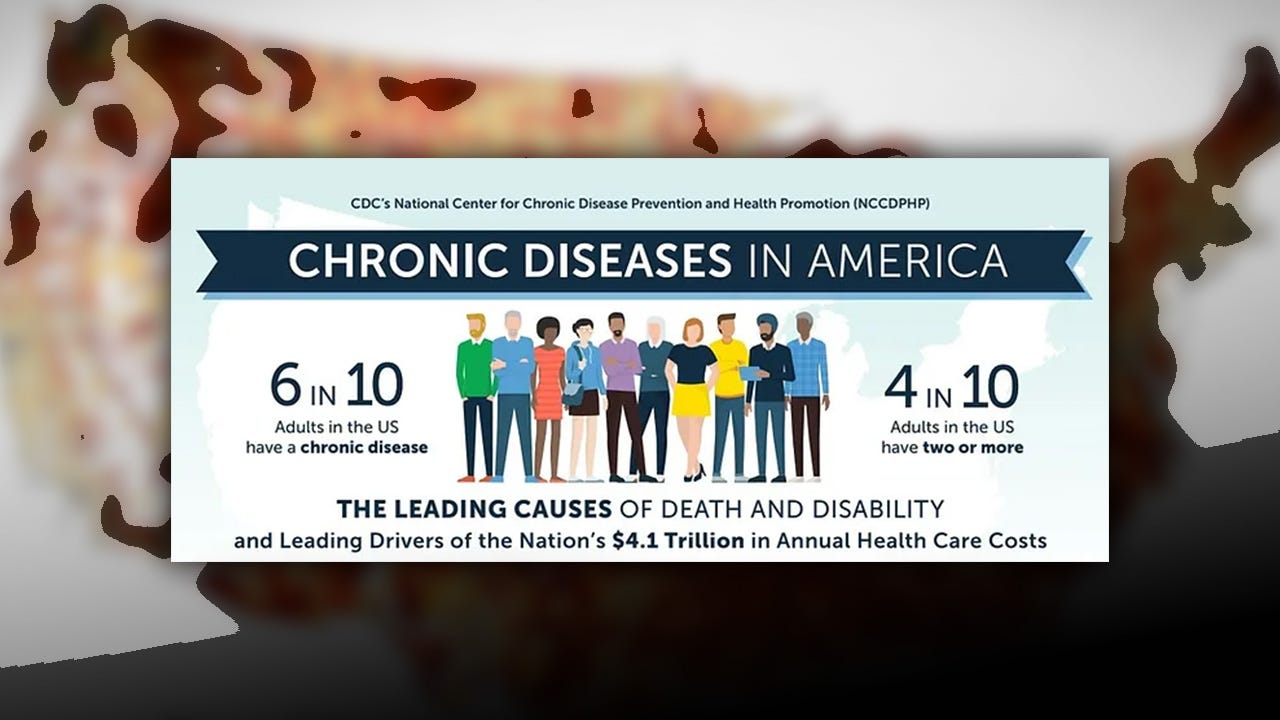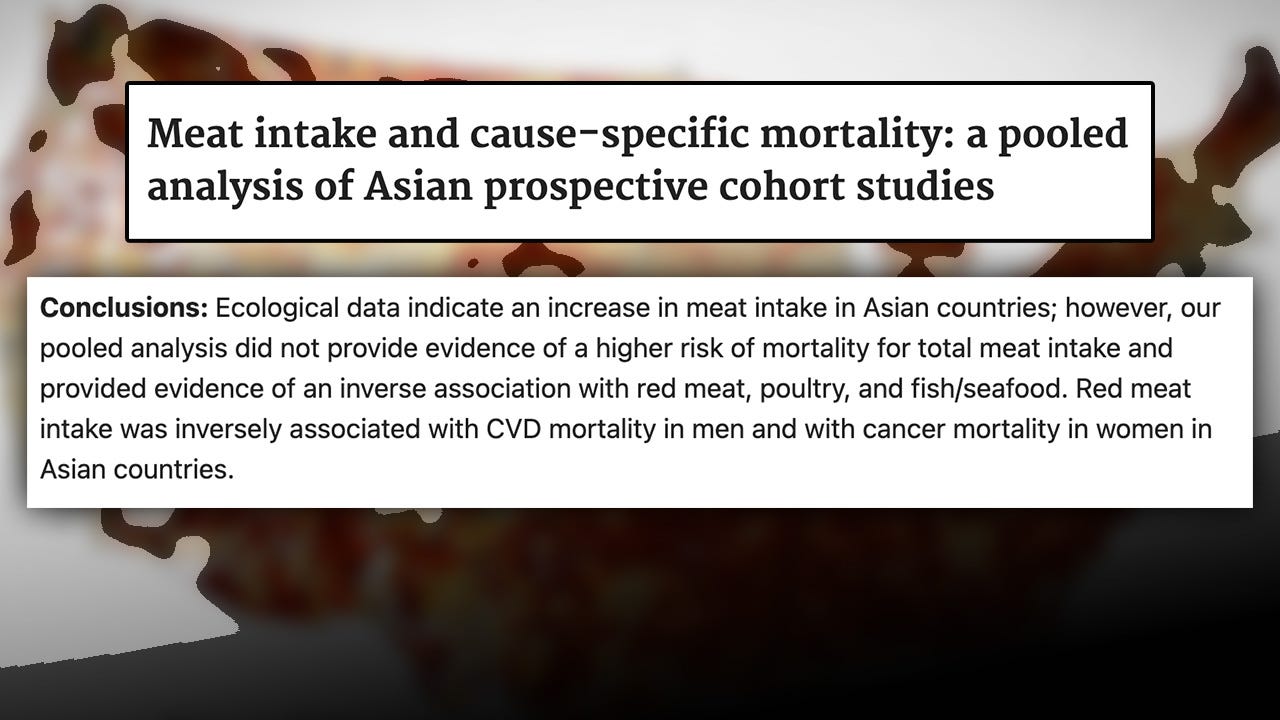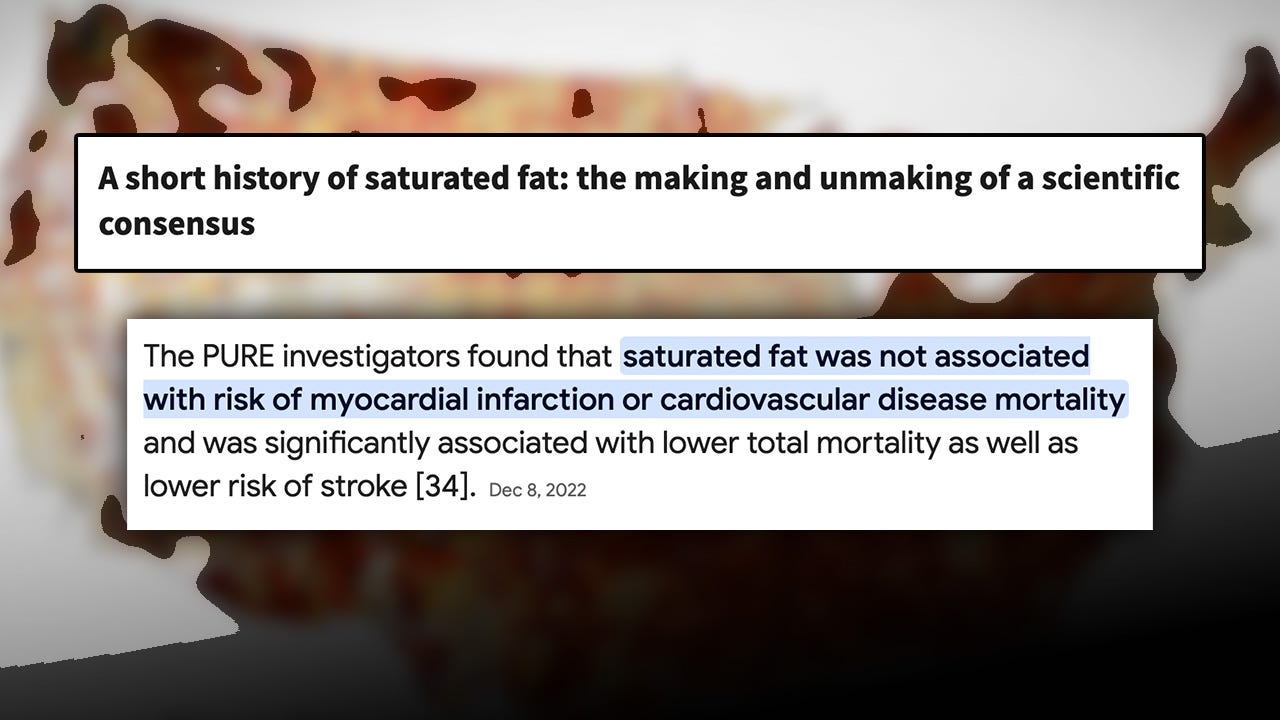The Epidemic of Chronic Disease and the Suppression of Animal-Based Nutrition in the U.S.
In recent decades, the United States has witnessed an unprecedented rise in chronic diseases such as obesity, diabetes, cardiovascular conditions, and autoimmune disorders. This crisis has been exacerbated by a medical system that prioritizes symptom management over prevention, largely benefiting the pharmaceutical industry. At the same time, mainstream nutritional guidelines, influenced by corporate and political interests, have demonized animal-based foods, leading to widespread nutrient deficiencies and metabolic dysfunction.
While many of my newsletters focus on the circadian & electromagnetic mismatches crippling our wellness this article critically examines our food system issues, arguing that the vilification of meat is not only scientifically flawed but also detrimental to public health. Instead, ancestral diets rich in animal products provide essential nutrients that can prevent and even reverse many chronic illnesses.
So, how did we get here…
Chronic disease is the leading cause of death in the United States, with conditions such as diabetes, heart disease, and obesity reaching epidemic proportions. The root causes of these diseases are often tied to diet and lifestyle, yet the healthcare system primarily relies on medications to manage symptoms rather than addressing the underlying problems. The pharmaceutical industry profits immensely from this approach, promoting long-term drug dependence rather than sustainable health solutions. This much I’m sure you know, but it goes deeper…
Compounding this issue, mainstream dietary guidelines—largely shaped by the U.S. Department of Agriculture (USDA)—have aggressively pushed for a reduction in animal product consumption, favoring grain-based and plant-based alternatives. This stance is not based on sound nutritional science but rather on economic and political interests. The demonization of meat, particularly red meat and saturated fat, has resulted in widespread public misinformation, leading people to adopt diets deficient in critical nutrients.
By understanding the flawed foundations of current dietary guidelines and medical practices, we can work towards reclaiming a diet that supports optimal well-being.
The Chronic Disease Epidemic – A Modern Health Crisis
The Alarming Rise of Chronic Diseases
Conditions such as:
Obesity
Type 2 diabetes
Cardiovascular diseases
Autoimmune disorders
Neurodegenerative diseases
are now more common than ever. According to the Centers for Disease Control and Prevention (CDC), nearly 60% of Americans suffer from at least one chronic illness, with 40% managing two or more.
The Link Between Diet and Disease
Much of this health crisis is directly linked to dietary changes. The shift from nutrient-dense, whole foods to ultra-processed, carbohydrate-heavy, seed oil laden diets has led to:
Increased leptin/insulin resistance
Chronic inflammation
Metabolic dysfunction
This along with increasingly indoor/sedentary lifestyles surrounded by innapropriate light/electromagnetic wavelength has driven us to the brink of what I’ll call “the sixth great extinction event!” Despite decades of low-fat dietary recommendations, rates of obesity and diabetes continue to rise, suggesting that mainstream guidelines are failing to protect public health.
The Medical System – A Business Model Built on Treatment, Not Prevention
The modern medical system is largely reactionary, treating symptoms rather than addressing underlying health issues. This approach results in:
Lifelong medication dependence
Increased pharmaceutical profits
Worsening health outcomes over time
For example, instead of promoting metabolic health through diet, physicians often prescribe statins for cholesterol, insulin for diabetes, and blood pressure medications, all of which come with significant side effects such as further nutrient depletion.
Often times these “side effects” are eventually met with another “pill for an ill” solution.
Pharmaceutical companies benefit from chronic illness. The industry generates billions annually by selling drugs that manage symptoms without solving the root causes. Many medications even create secondary health problems, leading to additional prescriptions. This cycle of dependency benefits corporations but fails patients.
The USDA, Dietary Guidelines, and the War on Meat
The USDA food guidelines, introduced in the 1980s, promoted a low-fat, high-carbohydrate diet—an approach that coincided with skyrocketing obesity rates. This shift was heavily influenced by corporate interests, particularly the grain and processed food industries.
Demonization of Animal Foods
The government and media have consistently promoted the idea that meat, especially red meat, is unhealthy. However, much of this claim is based on flawed observational studies rather than robust scientific evidence. In addition there have been many claims surrounding meat consumption and climate change. Something we discussed in an episode of Decentralized Radio with Dr. Frank Mitloehner from UC Davis. (LISTEN HERE)
In the episode we discuss at depth the impact methane from agricultural/ranching practices ACTUALLY impact the environmental load. The truth maybe unsettling for “climate scientists” to hear. As the United States total cattle/dairy cow population has steadily declined over the past 100 years, while output of beef/dairy products have increased due to more efficient practices.
So what about “cow farts” warming the planet?
Turns out the majority of these methane emissions don’t come from the United States at all, rather “idle emissions” from India (where cows are often put out to pasture once their milk production dwindles). These idle cow populations ranking in the many of millions of unproductive cattle.
China is the other major culprit where less efficient farming practices leave many pigs slaughtered. - Dr. Frank Mitloehner
I invite you to listen to the full episode where we cover this topic at length.
The Science Behind Animal-Based Nutrition
Nutrient Density of Animal Foods
Animal-based foods provide essential nutrients that are either absent or less bioavailable in plant-based diets, including:
Vitamin B12 (critical for brain and nervous system function)
Heme iron (the most absorbable form of iron)
Creatine (supports muscle and cognitive function)
DHA/EPA (essential omega-3 fatty acids for brain health)
Taurine (important for heart and eye health)
Many Americans suffer from deficiencies in these nutrients due to reduced animal food consumption.
Debunking the Myths About Meat and Health
Myth: Red Meat Causes Heart Disease
Studies linking red meat to heart disease rely on observational data, which does not establish causation.
Understanding the Healthy User Bias in Nutrition Studies
Many people worry that eating meat is unhealthy, but that belief is largely shaped by flawed studies and cultural biases rather than actual science.
In Western countries, meat consumption is often linked to unhealthy behaviors—think fast food, processed meals, and lifestyles that include smoking, drinking, and little exercise. The studies that claim meat is harmful fail to distinguish between someone eating grass-fed steak with vegetables and someone getting their meat from ultra-processed fast food while also consuming excessive sugar and processed carbs.
This is known as the healthy user bias—the idea that people who consciously follow a plant-based diet are also more likely to engage in other healthy behaviors like exercising, avoiding smoking, and managing stress. That’s why epidemiological studies in the West often favor plant-based diets, even though meat itself isn’t inherently unhealthy.
However, if you look at cultures where meat is associated with wealth and vitality—like in many parts of Asia—you see a different picture. In countries like Japan, Hong Kong, and Macau, where meat is a dietary staple, people also have some of the highest life expectancies in the world.
Studies that focus on these populations show that higher red meat consumption is actually associated with lower rates of heart disease and cancer—the exact opposite of what’s often claimed in Western research. For example, research like PMID: 23902788 highlights this difference.
And consider this: Hong Kong has the highest per capita meat consumption in the world—yet it also has one of the highest life expectancies.
Rather than fearing meat, it’s more important to focus on quality over quantity—choosing nutrient-dense, whole-food sources rather than ultra-processed versions. When included as part of a balanced diet, meat can absolutely be part of a long, healthy life.
Saturated fat has been wrongly blamed for cardiovascular disease despite numerous studies showing its neutral or even beneficial effects on health.
Myth: Meat Causes Cancer
The World Health Organization's classification of processed meats as carcinogenic is highly controversial, as the risk increase is marginal and confounded by other dietary and lifestyle factors.
Reclaiming Our Health – A Return to Ancestral Nutrition
The Importance of Regenerative Farming
Grass-fed, pasture-raised animal products provide the highest nutritional value.
Supporting local, ethical farming is key to sustainable health and food security.
How to Optimize an Animal-Based Diet
Emphasizing organ meats, bone broth, eggs, dairy, and fatty cuts of meat for optimal nutrition.
Eliminating processed foods and seed oils to improve metabolic health.
The Deceptive Health Food Aisle: What’s Really in Those “Healthy” Products?
Walk into any grocery store, and the so-called health food aisle is filled with flashy packaging and buzzwords like “clean,” “natural,” and “high-protein.” Protein powders, bars, collagen peptides, and electrolyte drinks dominate the shelves, promising muscle recovery, fat loss, and optimal hydration. But a closer look at the ingredient lists reveals a different story—these products are often packed with artificial additives, preservatives, and other questionable ingredients. Many protein powders contain artificial sweeteners like sucralose and acesulfame potassium, which can disrupt gut bacteria and increase cravings for sugar. Protein bars, while marketed as a healthy snack, are frequently loaded with maltitol and erythritol, sugar alcohols that can cause bloating and digestive discomfort. Even electrolyte drinks, meant to aid hydration, often contain red 40, blue 1, and yellow 5, artificial food dyes that have been linked to hyperactivity and potential carcinogenic effects.
Beyond artificial ingredients, many of these products contain microplastics and heavy metals due to contamination in the manufacturing process. A 2018 study by the Clean Label Project found that many popular protein powders contained measurable levels of lead, arsenic, and BPA—chemicals known to disrupt hormones and contribute to long-term health risks. Collagen peptides, often sourced from industrially farmed animals, can also contain contaminants from processing methods that use harsh solvents. Meanwhile, many of these products are coated in added sugar, which spikes blood sugar levels and contributes to insulin resistance. Some so-called "low sugar" protein bars still contain high-fructose corn syrup or glucose syrup, making them no better than candy bars with a protein label slapped on.
The best solution? Prioritize whole, unprocessed foods instead of relying on ultra-processed “health” products. Whole-food-based meal replacements, like The Carnivore Bar (Use code RMB10 for 10% off) who offers a clean and nutrient-dense alternative, free from artificial fillers, excess sugar, and harmful additives.
Try Carnivore Bar - My Favorite Flavor is “Honey Salted”
Instead of relying on powdered protein, eating whole sources like grass-fed beef, eggs, and wild-caught fish provides complete amino acids without unnecessary additives. For hydration, real mineral-rich sea salt and potassium-rich foods like avocados are far superior to synthetic electrolyte packets. The key to true health isn’t in a heavily marketed wrapper—it’s in real food, minimally processed, and as close to nature as possible.
Are We Ready to Challenge the System?
The science is clear: meat and animal foods have been an essential part of the human diet for millennia. It’s time to discard outdated, corporate-driven narratives and reclaim the ancestral diet that our bodies were designed for.
Sincerely your friendly neighborhood health nerd,
Ryan












